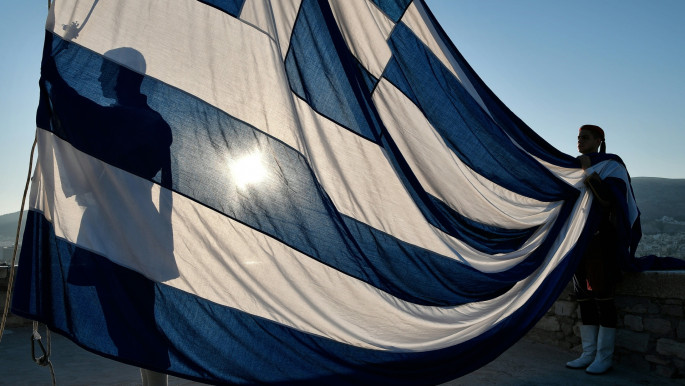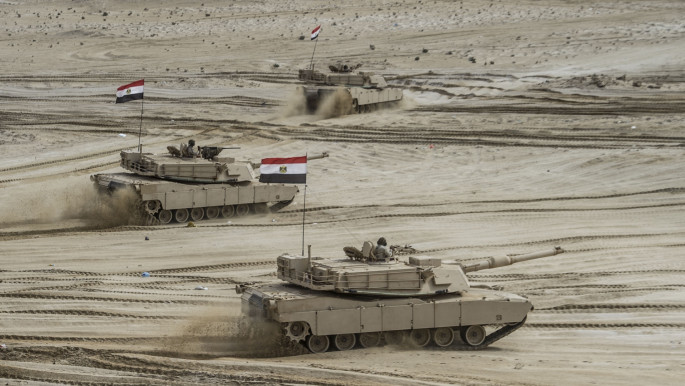Greece-Egypt maritime deal aims to shackle Turkey's Mediterranean designs
The map, which was published at the time of the announcement, showed that the agreement was in fact only partial, and lacks key details.
While some were surprised by the speed of the announcement, the truth is that consultations between the two countries date back to the time of former Egyptian President Hosni Mubarak. They then returned to the forefront at the end of 2014, while almost taking shape again at the beginning of 2018.
What is most surprising, however, is the timing of the agreement, which came days after the announcement that Ankara would suspend all research activities in the eastern Mediterranean, following German Chancellor Angela Merkel's initiative to control tensions between the two neighbours and open a window for a new round of negotiations.
This sudden agreement between Greece and Egypt is the spark that could further ignite tensions, and possibly conflict, in the eastern Mediterranean.
Negotiations which began under Mubarak were complex, former officials in the Greek energy ministry told The New Arab, with Cairo making high demands to a reach a comprehensive agreement. Under Egyptian President Abdel Fattah al-Sisi talks became significantly smoother, with Cairo making concessions on border demarcation in 2014 negotiations. At the time, however, the Greek government faced pressure from Europe and postponed all discussions.
 |
The agreement between Greece and Egypt is the spark that could further ignite tensions, and possibly conflict, in the eastern Mediterranean |  |
The issue reopened in early 2017, as talks proceeded with the same pattern of Egyptian concessions in order to quickly start gas and oil explorations. At that time, the Greek side showed procrastination related to the reluctance of the Syriza government led by Alexis Tsipras to increase tensions with Ankara. This Greek slowdown and lack of seriousness has now changed with the new administration of Kyriakos Mitsotakis. However, it comes at the wrong moment.
Today, the Greek government is heavily influenced by Paris. President Emmanuel Macron took the reins in France at a time when Europe had no clear leader, with the British disembarking the European ship and Chancellor Angela Merkel of Germany facing internal divisions and health issues.
 |
|
| Read more: France and Turkey's growing rivalry in the Middle East |
Greece at the time required urgent European support, both financially and politically, in light of the growing regional role of Turkey, and Mitsotakis, prime minister since July 2019, turned to France in Europe, Israel regionally, and Abu Dhabi in the Arab world. The weak position presented by the Greek government was exploited by Paris to control Greek foreign policy in great detail.
Greece, for the first time, chose sides in conflicts within the Middle East and North Africa, sending Patriot missiles and troops to Saudi Arabia and hosting Libyan National Army (LNA) leader General Khalifa Haftar to provide diplomatic cover in a visit coordinated with Paris.
Finally, the most important announcement was the demarcation of the sea border with Egypt, part of a French-Emirati plan to put pressure on Turkey in the Libyan conflict.
In June, when forces of the Government of National Accord (GNA) advanced on Sirte, located near the most important economic and geopolitical region of the country, Haftar's allies in Paris, Abu Dhabi and Moscow felt the country had begun to slip from their sphere of influence, given the strong Turkish military, political and economic support for the GNA. This development pushed them into action.
 |
The demarcation of the sea border with Egypt is part of a French-Emirati plan to put pressure on Turkey in the Libyan conflict |  |
The first move was from Cairo, with the Egyptian parliament approving a military deployment in Libya under the pretext of protecting Egypt's national security. The move came under pressure from the United Arab Emirates (UAE), who promised that the financially weary Egyptian government would have a stake in the Libyan pie.
The second move was made by Russia, which has recently faced an increase in tensions in northern Syria, mainly around Idlib province. Moscow is pushing more Syrian regime forces to the area around Idlib, sending a clear message to Turkey that it could further complicate the situation in the north.
 |
|
| Greek-Italian maritime deal sends clear message to Turkey as Mediterranean tensions rise |
Finally, the Cairo agreement on the demarcation of the maritime border between Greece and Egypt was the third move, fuelling tensions between Greece and Turkey in the eastern Mediterranean and increasing external pressure on Ankara on more than one front.
Cairo agreement through Greek eyes
In the media, the Greek ruling party, New Democracy, presented the accord as a historic victory that solves a decade-old problem and reinforces the map of the maritime borders that Athens signed with Rome. Many Greek officials have confirmed that the agreement will be a major bulwark against the Turkish-Libyan memorandum signed late last year.
 |
In light of the growing regional role of Turkey, Greece has turned to France in Europe, Israel regionally, and Abu Dhabi in the Arab world |  |
The reality, however, is that any negative impact of the agreement on Greece, both internally and externally, have been omitted by the official Greek media. It did not, for example, draw the entire border but only a small part of it, and a new Egyptian government could nullify it and return to previous arrangements.
Additionally, the plan does not include the island of Kastellorizo, which is the spearhead of the dispute with Ankara, raising many questions about the reasons why Athens strongly demands it for the negotiations with Turkey but removes it from the map of the border with Egypt. This can be considered a major diplomatic defeat for Athens internationally.
 |
|
| Read more: Egypt's military gambit in Libya risks backfiring |
Going back to the basics of politics, the order of priorities determines the negative or positive effects of any move. Today, with Greece economically and politically tired in the shadow of the Covid-19 crisis and the end of the tourist season, the priority must be to move away from any external tensions.
The agreement with Cairo, however, will not bring any immediate benefits to Greece and reduces its chances for any new investment plans. Moreover, the move will damage trust between Athens and Berlin, as the former's lack of respect for the German request for calm can be characterised as political futility.
The scene today is more dangerous than ever. Greece and Turkey are two NATO member states, which prevents them from clashing with each other. But relying on this to limit any tension is unrealistic.
Today, with its growing influence in the region, Turkey feels obliged to protect its prestige even if it is forced to go to a military conflict with its neighbour. On the other hand, the Greek government feels more confident than it should that its French ally will protect it in any future military conflict.
The situation today in the eastern Mediterranean is complex and interrelated. The possibility of a limited conflict is still present, but only the Turkish and Greek people will lose out.
Eva J. Koulouriotis is a political analyst specialising in the Middle East
Follow her on Twitter: @evacool_


![President Pezeshkian has denounced Israel's attacks on Lebanon [Getty]](/sites/default/files/styles/image_684x385/public/2173482924.jpeg?h=a5f2f23a&itok=q3evVtko)



 Follow the Middle East's top stories in English at The New Arab on Google News
Follow the Middle East's top stories in English at The New Arab on Google News


